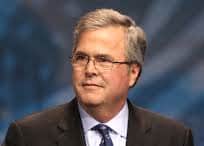Caribbean Foreign ministers agree on the need for enhanced engagement with the Caribbean Diaspora
BASSETERRE, St. Kitts – Caribbean ministers of Foreign Affairs have undertook another in-depth discussion on foreign policy coordination, a mechanism whose institutionalization and critical importance have been the subjects of constant focus.
During the just concluded Fifteenth Meeting of the Council for Foreign and Community Relations (COFCOR) of the Caribbean Community (CARICOM) in Paramaribo, Suriname, the Council acknowledged the factors that have made the practice of coordination more challenging, especially for small states with limited capacity and resources,
These include an increasingly burdened international and hemispheric agenda; drastic systemic and technological changes to the environment in which diplomacy is practised and divergent economic and political interests of individual sovereign Member States. It stressed the need for in-country harmonization on policy matters that impinge on external relations as a prelude to coordination with other Member States.
In a communiqué after the meeting at which St. Kitts and Nevis was represented by Permanent Secretary in the Ministry of Foreign Affairs, Mr. Elvis Newton, the need for greater consultation and coordination was emphasised with Foreign Ministers reaffirming a number of operational guidelines including information collection and dissemination, and the more frequent use of modern information and communication technologies.
“The use of the latter will enhance the consultation and decision making of the Council through continuous contact. The Council underscored the critical need for articulation of common policy positions and consistency of messages. Particular attention was paid to the key coordinating roles played by the Bureau of COFCOR, especially in-between Council meetings and Caucuses prior to bilateral meetings and to the preparatory work of Senior Officials and the Secretariat,” said the communiqué.
The Council reviewed the Community’s relations with a number of its partners, including Australia, Brazil, Canada, Cuba, Japan, the United Kingdom and the United States of America.
The Council noted the progress made in the strengthening of relations with a number of Third Countries since its last Meeting through, inter alia, meetings at the Ministerial and Heads of Government levels.
The Council further discussed the coordination of positions on a number of issues of strategic interest to the Region, in preparation for a scheduled interface with Third countries and groups of countries for the remainder of 2012, including the CARICOM-Mexico Summit, the African Union (AU) Diaspora Summit, both in May, and the Association of Caribbean States (ACS) Summit in July.
Ministers engaged in intense discussions regarding the deleterious effects that the discriminatory implementation by the UK of its Air Passenger Duty (APD) is having on the Region’s economies.
They denounced in strong terms the negative impact that the tax continues to have on the Region’s revenue sources, observing that the tax was distorting trade and compromising the Region’s efforts towards sustainable development, including the achievement of the Millennium Development Goals (MDGs). They resolved to redouble their lobbying efforts in the UK, including with the continued support and influence of the Caribbean Diaspora, to vigorously advocate for review of the tax.
The Council agreed on the need for enhanced engagement with the Caribbean Diaspora and the formulation of a regional policy that would provide a platform for mobilising the talents, skills and resources of the communities of Caribbean origin overseas for promoting trade and investment, national development, policy formulation and advancing the interests of the Community.
Strengthened relations with the Community’s Latin American neighbours featured prominently in the Council’s discussions as they analyzed the Community’s role in hemispheric and sub-regional bodies such as the Community of Latin American States (CELAC), the Association of Caribbean States (ACS) and CARICOM’s continued strategic alliance with Central American States through an intensified relationship between CARICOM and la Sistema de la Integración Centroamericana (SICA).
With regard to the ACS, the Council welcomed the election of the new Secretary General, His Excellency Dr. Alfonso Múnera Cavadia of Colombia, and looked forward to continued close collaboration under the new administration. The Ministers further looked forward to participating actively in the Fifth Summit of the ACS to be hosted by Haiti, later this year, under the theme
“Towards a Renewal of the Vision of the ACS for a Stronger and More United Greater Caribbean”. The importance of active participation by CARICOM Member States in the activities of the organization and in shaping its policy directions was underlined.
The meeting reiterated the importance of ensuring continued vigorous action and leadership in pursuing the operationalisation of the Caribbean Sea Commission, building on the substantial achievements gained through international recognition for this body as a pioneer institution in marine regionalism. The Council called for the establishment of key institutional mechanisms of the Commission, resourcing its operations to ensure financial sustainability, and elaborating a legal framework for regional and international acceptance.





